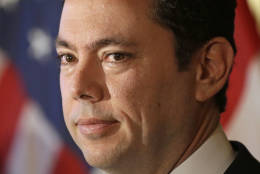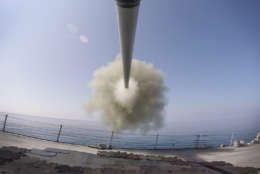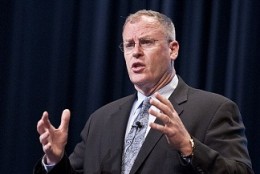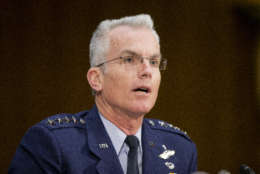Defense Department
-
Senate Armed Services Committee Chairman John McCain (R-Ariz.) laid the weight of DoD's first audit squarely on the shoulders of David Norquist, President Trump's pick for DoD comptroller. The department hasn't been audited in 17 years, and has spent the past seven engaged in audit-readiness preparations.
May 10, 2017 -
In today's Top Federal Headlines, two senior Republican lawmakers have called for reassurances from the Department of Health and Human Services (HHS) that is not interfering with its employees’ communications with members of Congress.
May 05, 2017 -
The Defense Department's Strategic Capabilities Office has managed to successfully transition all six of the weapons systems it's developed into programs of record that are now controlled by the military services. The secret to its success, according to the SCO's director, is its insistence on prototyping.
May 05, 2017 -
New Defense guidance says the blanket hiring freeze is now over. But it includes several caveats in line with the goal of reorganizing and reducing the size of the federal workforce.
May 03, 2017 -
Besides proportioning DoD’s appropriations into roughly the same accounts officials had asked for, the plan includes a 2.1 percent pay raise for both military members and civilians.
May 02, 2017 -
As agencies begin to implement the EO over the next eight months, the potential elimination of various carve-outs is going to be the most interesting thing to watch — and the thing that most worries the folks who pay close attention to Defense technology procurement.
May 02, 2017 -
The Navy’s top officer says he remains convinced that the global security landscape will demand “more Navy,” over the next few decades, but his service appears to be tempering its appetite for exactly how much more, at least when measured in numbers of ships and people.
May 02, 2017 -
The federal government was overrun by children on Take Our Daughters and Sons to Work Day, as agencies rolled out vehicles, cool tech, and even some human organs to capture the kids' imaginations.
April 28, 2017 -
The Government Accountability Office's report on reducing agency fragmentation, overlap, and duplication shows the federal government could save tens of billions of dollars — if agencies choose to act on the recommendations and Congress offers its help.
April 26, 2017 -
In this week's edition of On DoD, Peter Kim, the Air Force's chief technology officer, Alex Rice, the CTO at HackerOne, and Reina Staley, the chief of staff of the Defense Digital Service join is to talk about the latest of DoD's bug bounties: Hack the Air Force. We’ll also talk about changes in how the Army buys cloud computing services as part of a broader effort to shut down expensive, government-owned data centers.
April 26, 2017 -
Army says commands have already issued several RFPs under new contract vehicle for cloud services, migration.
April 25, 2017 -
Office of Management and Budget Director Mick Mulvaney has echoed the sentiment of President Donald Trump on the possibility of a government shutdown this week.
April 24, 2017 -
The Army is in the midst of a sweeping review of its intelligence apparatus. Interviews and surveys are asking commanders at every level what they'll need from the intelligence corps over the next decade.
April 20, 2017 -
The nation’s number-two military officer added himself to the list of Defense officials who’ve expressed unease about taking funds away from the State Department as one way to pay for a $54 billion plus-up in military spending.
April 18, 2017 -
For the third year in a row, members of the House and Senate are trying to undo an unpopular 2014 DoD policy change that drastically cut reimbursement rates for military members and civilians on long-term travel.
April 18, 2017















